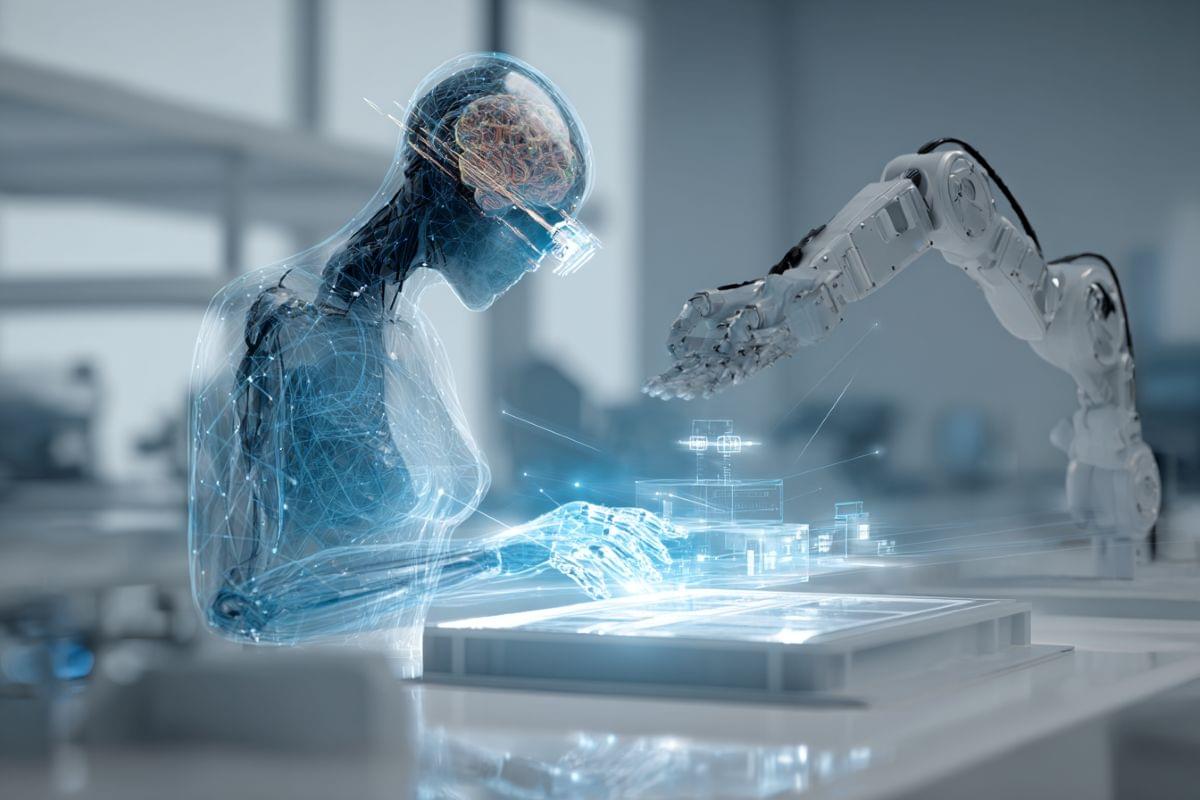Researchers have created a noninvasive brain-computer interface enhanced with artificial intelligence, enabling users to control a robotic arm or cursor with greater accuracy and speed.



Tesla is poised for massive growth in autonomy and investor opportunities driven by the expansion of its Full Self-Driving feature, robo-taxi fleet, and new model launches, signaling a significant shift in its business and valuation.
Questions to inspire discussion.
FSD and Robotaxi Rollout.
🚗 Q: What improvements are expected in Tesla’s FSD version 14? A: FSD v14 is anticipated to be 100-1000x better than v13, with 2 million miles between safety-critical disengagements, making it safer than human drivers.
Get a free trial TODAY with Hostinger Horizons! Use code ISAACARTHUR to get 10% off your first month here: hostinger.com/isaacarthur.
We often contemplate superintelligent entities, and advances in AI and human mind augmentation may soon bring them about. But how big could they get? What would they think about? And might you, or I, one day become one ourselves?
Visit our Website: http://www.isaacarthur.net.
Join Nebula: https://go.nebula.tv/isaacarthur.
Support us on Patreon: / isaacarthur.
Support us on Subscribestar: https://www.subscribestar.com/isaac-a… Group: / 1,583,992,725,237,264 Reddit:
/ isaacarthur Twitter:
/ isaac_a_arthur on Twitter and RT our future content. SFIA Discord Server:
/ discord Credits: Jupiter Brains & Mega Minds [2025 Extended Edition] Written, Produced & Narrated by: Isaac Arthur Graphics: Jeremy Jozwik Sergio Botero Ken York Select imagery/video supplied by Getty Images Music Courtesy of Epidemic Sound http://epidemicsound.com/creator.
Facebook Group: / 1583992725237264
Reddit: / isaacarthur.
Twitter: / isaac_a_arthur on Twitter and RT our future content.
SFIA Discord Server: / discord.
Credits:
Jupiter Brains & Mega Minds [2025 Extended Edition]
Written, Produced & Narrated by: Isaac Arthur.
Graphics:
Jeremy Jozwik.
Sergio Botero.
Ken York.
Select imagery/video supplied by Getty Images.
Music Courtesy of Epidemic Sound http://epidemicsound.com/creator


The Faiss library is an open source library, developed by Meta FAIR, for efficient vector search and clustering of dense vectors. Faiss pioneered vector search on GPUs, as well as the ability to seamlessly switch between GPUs and CPUs. It has made a lasting impact in both research and industry, being used as an integrated library in several databases (e.g., Milvus and OpenSearch), machine learning libraries, data processing libraries, and AI workflows. Faiss is also used heavily by researchers and data scientists as a standalone library, often paired with PyTorch.
Collaboration with NVIDIA
Three years ago, Meta and NVIDIA worked together to enhance the capabilities of vector search technology and to accelerate vector search on GPUs. Previously, in 2016, Meta had incorporated high performing vector search algorithms made for NVIDIA GPUs: GpuIndexFlat ; GpuIndexIVFFlat ; GpuIndexIVFPQ. After the partnership, NVIDIA rapidly contributed GpuIndexCagra, a state-of-the art graph-based index designed specifically for GPUs. In its latest release, Faiss 1.10.0 officially includes these algorithms from the NVIDIA cuVS library.

Introduction Early detection of cardiovascular disease in primary care is a public health priority, for which the clinical and cost-effectiveness of an artificial intelligence-enabled stethoscope that detects left ventricular systolic dysfunction, atrial fibrillation and cardiac murmurs is unproven but potentially transformative.
Methods and analysis TRICORDER is a pragmatic, two-arm, multi-centre (decentralised), cluster-randomised controlled trial and implementation study. Up to 200 primary care practices in urban North West London and rural North Wales, UK, will be randomised to usual care or to have artificial intelligence-enabled stethoscopes available for use. Primary care clinicians will use the artificial intelligence-enabled stethoscopes at their own discretion, without patient-level inclusion or exclusion criteria.

GPT-5, our newest flagship model, represents a substantial leap forward in agentic task performance, coding, raw intelligence, and steerability.
While we trust it will perform excellently “out of the box” across a wide range of domains, in this guide we’ll cover prompting tips to maximize the quality of model outputs, derived from our experience training and applying the model to real-world tasks. We discuss concepts like improving agentic task performance, ensuring instruction adherence, making use of newly API features, and optimizing coding for frontend and software engineering tasks — with key insights into AI code editor Cursor’s prompt tuning work with GPT-5.
We’ve seen significant gains from applying these best practices and adopting our canonical tools whenever possible, and we hope that this guide, along with the prompt optimizer tool we’ve built, will serve as a launchpad for your use of GPT-5. But, as always, remember that prompting is not a one-size-fits-all exercise — we encourage you to run experiments and iterate on the foundation offered here to find the best solution for your problem.
Questions to inspire discussion.
🇦🇺 Q: How was Tesla’s FSD supervised launch received in Australia? A: Tesla’s FSD supervised launch in Australia received fair coverage from mainstream media, including a 4.5-minute segment on national news, without Tesla paying for advertising.
🚘 Q: What are the key features of Tesla’s FSD supervised system? A: Tesla’s FSD supervised system uses cameras and advanced software to autonomously accelerate, brake, and steer, but requires the driver to be responsible and ready to take control at any time.
FSD Safety Concerns.
⚠️ Q: What safety issues have been reported with Tesla’s FSD supervised system? A: Tesla’s FSD supervised system has been involved in multiple accidents overseas, but in most cases, the driver was distracted and tried to blame the car, highlighting the need for drivers to take full responsibility.
🇺🇸 Q: What legal challenges has Tesla faced with FSD in the US and Canada? A: Tesla’s FSD supervised system has been slapped with lawsuits in the US and Canada due to multiple crashes, with Tesla stating that in most cases, the driver was distracted and not using the system properly.